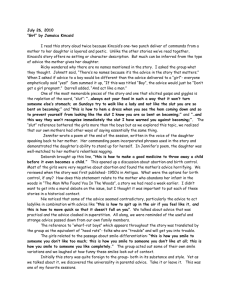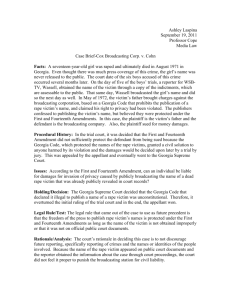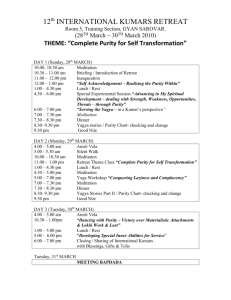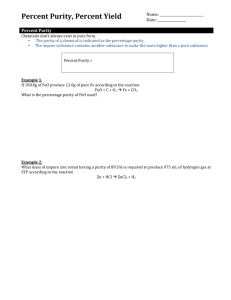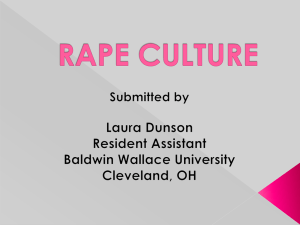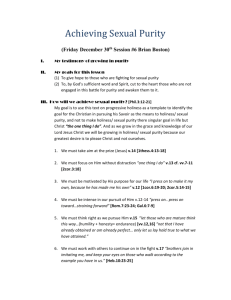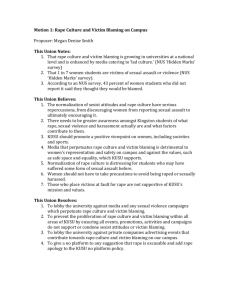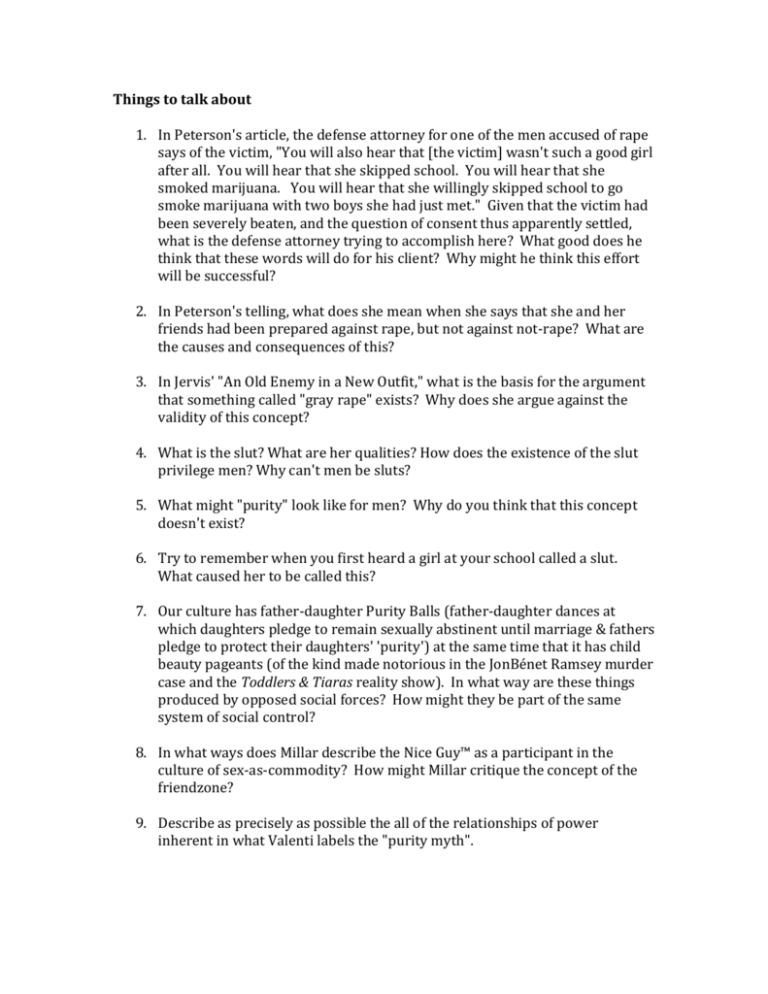
Things to talk about
1. In Peterson's article, the defense attorney for one of the men accused of rape
says of the victim, "You will also hear that [the victim] wasn't such a good girl
after all. You will hear that she skipped school. You will hear that she
smoked marijuana. You will hear that she willingly skipped school to go
smoke marijuana with two boys she had just met." Given that the victim had
been severely beaten, and the question of consent thus apparently settled,
what is the defense attorney trying to accomplish here? What good does he
think that these words will do for his client? Why might he think this effort
will be successful?
2. In Peterson's telling, what does she mean when she says that she and her
friends had been prepared against rape, but not against not-rape? What are
the causes and consequences of this?
3. In Jervis' "An Old Enemy in a New Outfit," what is the basis for the argument
that something called "gray rape" exists? Why does she argue against the
validity of this concept?
4. What is the slut? What are her qualities? How does the existence of the slut
privilege men? Why can't men be sluts?
5. What might "purity" look like for men? Why do you think that this concept
doesn't exist?
6. Try to remember when you first heard a girl at your school called a slut.
What caused her to be called this?
7. Our culture has father-daughter Purity Balls (father-daughter dances at
which daughters pledge to remain sexually abstinent until marriage & fathers
pledge to protect their daughters' 'purity') at the same time that it has child
beauty pageants (of the kind made notorious in the JonBénet Ramsey murder
case and the Toddlers & Tiaras reality show). In what way are these things
produced by opposed social forces? How might they be part of the same
system of social control?
8. In what ways does Millar describe the Nice Guy™ as a participant in the
culture of sex-as-commodity? How might Millar critique the concept of the
friendzone?
9. Describe as precisely as possible the all of the relationships of power
inherent in what Valenti labels the "purity myth".
10. How does Millar argue that the commodity model of sex facilitates sexual
assault? How does he propose that a performance model for sex will
improve upon this?
11. What are the fundamental differences between conceiving of sex as a thing to
be exchanged and thinking of it as a collaborative performance? How might
men benefit and women be disadvantaged by the conceptualization of sex as
a commodity?




